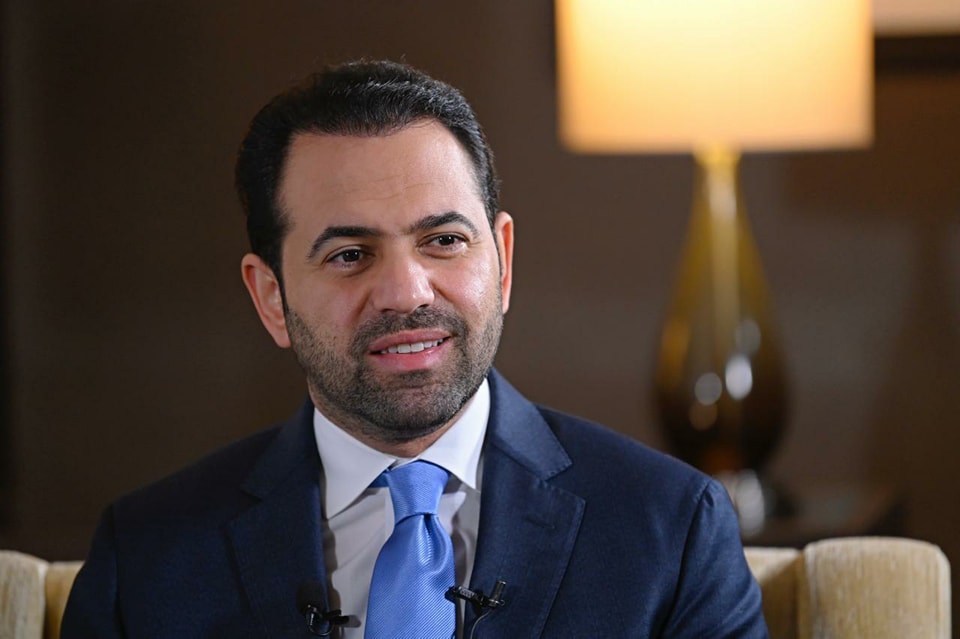During the Sixth Session of the United Nations Environment Assembly (UNEA-6) … The Muslim Council of Elders Contributes to the Launch of “Al-Mizan: A Covenant for the Earth,” Inspired by Islamic Principles of Sustainability and Environmental Stewardship
The Muslim Council of Elders took part in the unveiling of “Al-Mizan: A Covenant for the Earth,” a document inspired by Islamic principles of sustainability and environmental stewardship. This significant event occurred during the Sixth Session of the United Nations Environment Assembly (UNEA-6), held in Nairobi, Kenya, from February 26 to March 1. The assembly convened under the theme “Effective, inclusive, and sustainable multilateral actions to tackle climate change, biodiversity loss, and pollution.”
“Al-Mizan: A Covenant for the Earth” serves as a collective expression of the Islamic community’s stance on environmental issues. It encourages Muslims worldwide to integrate sustainability into their daily lives and collaborate in safeguarding our shared home, planet Earth. The document’s importance is underscored by its encapsulation of fundamental Islamic values and principles concerning the environment, as well as the widespread consensus it has garnered. The Muslim Council of Elders has actively supported the document, following its contribution to the review of its contents.
The document underscores a range of principles aimed at environmental preservation, sustainable development, and environmental justice, drawing inspiration from Islamic teachings that emphasize the interconnectedness of all creatures and the imperative to safeguard the planet for future generations.
In her address at the document’s launch, Her Excellency Leila Benali, Minister of Energy Transition and Sustainable Development in the Kingdom of Morocco, lauded the substantial efforts of over 300 institutions and individuals in bringing “Al-Mizan: A Covenant for the Earth” to fruition. She pointed out that this trailblazing document and its endorsed principles are intended to act as a guiding framework for living in harmony with nature.
Archbishop Hubertus van Megen, the Permanent Observer of the Holy See to the United Nations Environment Programme and Apostolic Nuncio to Kenya and South Sudan, remarked that “Al-Mizan: A Covenant for the Earth,” while deeply rooted in Islamic spiritual teachings, finely balances faith and reason. It reassures believers that religion does not constrain science. He further stated that the document serves as the Islamic equivalent to the papal encyclical “Laudato Si’: On Care for Our Common Home.” He also praised the Muslim Council of Elders for organizing the Global Faith Leaders Summit on Climate Action in Abu Dhabi and the Faith Pavilion at COP28, marking a historic first in the history of the Conference of the Parties.
Dr. Samir Boudinar, Director of the Al-Hokama Center for Peace Research affiliated with the Muslim Council of Elders, emphasized that “Al-Mizan: A Covenant for the Earth” is the outcome of a significant initiative launched as part of a strategy aiming to enhance the role of cultural and religious factors in environmental protection and sustainable development. He highlighted that the release of Al-Mizan, as a covenant for the Earth, alongside various partners, showcases the importance of culture and religion in driving behavioral change, a crucial element in environmental action, alongside scientific and technical solutions, legal frameworks, institutional initiatives, and policies at various levels.
Director of Al-Hokama Center for Peace Research added that the Muslim Council of Elders’ collaboration in preparing and announcing this document stems from its commitment to addressing all issues impacting human peace across different domains. This commitment led to the creation of the document known as The Call of Conscience: Abu Dhabi Interfaith Statement on Climate Change, a document that reflects the Council’s vision for environmental issues, drawing inspiration from religious values to outline the role of scholars and wise men in addressing its risks, with climate change being a primary concern. The Call of Conscience was signed by His Eminence Sheikh Ahmed Al-Tayeb, Grand Imam of Al-Azhar Al-Sharif and Chairman of the Muslim Council of Elders, and His Holiness Pope Francis, Pontiff of the Catholic Church, along with 38 religious leaders and figures during the Global Faith Leaders Summit on Climate Change held in Abu Dhabi last November. Additionally, the Muslim Council of Elders, in collaboration with the COP28 Presidency, the Ministry of Tolerance and Coexistence in the UAE, and the United Nations Environment Programme, organized the Faith Pavilion at COP28, marking a historic first in the history of the Conference of the Parties.
In his concluding remarks, Dr. Samir Boudinar stated that this pivotal moment of announcing “Al-Mizan: A Covenant for the Earth” ushers in a new phase of work to support the document’s principles, necessitating increased cooperation and expanded partnerships with all voices advocating for the role of faith. It also calls for the activation of spiritual and moral values in transforming human awareness and behavior, and enhancing responsibility towards the environment and commitment to sustainability.
The launch of Al-Mizan document saw participation from several Islamic and international institutions, including the Muslim Council of Elders, the Islamic World Educational, Scientific, and Cultural Organization (ICESCO), the UNEP’s Faith for Earth Initiative, the Islamic Foundation for Ecology and Environmental Sciences (IFEES), as well as Hamad Bin Khalifa University (HBKU) and the Qur’anic Botanic Garden in Qatar, Üsküdar University in Turkey, and Embrace the Earth organization.










